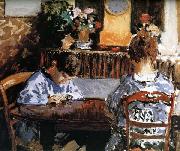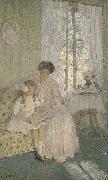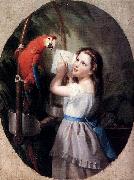Wholesale Oil Painting No Minimum |
|||||||||||
|
|
|||||||||||

|
|||||||||||
|
|
|
||||||||
Alfred SisleyFrench 1839-1899 Alfred Sisley Galleries Alfred Sisley (October 30, 1839 ?C January 29, 1899) was an English Impressionist landscape painter who was born and spent most of his life in France. Sisley is recognized as perhaps the most consistent of the Impressionists, never deviating into figure painting or finding that the movement did not fulfill his artistic needs. Sisley was born in Paris to affluent English parents; William Sisley was in the silk business, and his mother Felicia Sell was a cultivated music connoisseur. At the age of 18, Sisley was sent to London to study for a career in business, but he abandoned it after four years and returned to Paris. Beginning in 1862 he studied at the atelier of Swiss artist Marc-Charles-Gabriel Gleyre, where he became acquainted with Fr??d??ric Bazille, Claude Monet, and Pierre-Auguste Renoir. Together they would paint landscapes en plein air (in the open air) in order to realistically capture the transient effects of sunlight. This approach, innovative at the time, resulted in paintings more colorful and more broadly painted than the public was accustomed to seeing. Consequently, Sisley and his friends initially had few opportunities to exhibit or sell their work. Unlike some of his fellow students who suffered financial hardships, Sisley received an allowance from his father??until 1870, after which time he became increasingly poor. Sisley's student works are lost. His earliest known work, Lane near a Small Town is believed to have been painted around 1864. His first landscape paintings are sombre, coloured with dark browns, greens, and pale blues. They were often executed at Marly and Saint-Cloud. |
||||||||
|
|
||||||||
The Lesson
The Lesson Painting ID:: 27232 |
mk55
c.1874
Oil on canvas
41.3x47cm
mk55 c.1874 Oil on canvas 41.3x47cm |
|||||||
|
|
||||||||
E. Phillips FoxEmanuel Phillips Fox (1865-1915) was an Australian Naturalist painter. |
||||||||
|
|
||||||||
|
|
The Lesson
The Lesson Painting ID:: 95218 |
circa 1912(1912)
Medium oil on canvas
Dimensions 183.6 (h) x 112.6 (w) cm
cyf circa 1912(1912) Medium oil on canvas Dimensions 183.6 (h) x 112.6 (w) cm cyf |
||||||
|
|
||||||||
Fritz Zuber-Buhlerwas a Swiss painter integrant of the style Academic Classicism, born in 1822 at Le Locle in Switzerland and died November 23, 1896. At sixteen years old he moved to Paris, France where found his first teacher Louis Grosclaude. Later he studied at the École des Beaux-Arts and then refined his technical skills with François-Édouard Picot, who followed the same lineage of contemporaneous artists such as Leon Perrault, Bouguereau, Alexandre Cabanel and many others. Afterwards he spent some time in Italy searching for inspiration and raise the quality of his art. Then, returning to Paris, he made his debut at the Salon in 1850 exhibiting alongside oil paintings, drawings, pastels and watercolors. His painting Innocence shows his romantic view of the peasant childhood and their environments, expressing nature, softness and intense details. Also his works were drawn by popular themes at that period like mythology, religion and requested portraits. Zuber-Buhler produced exhibitions in the United States, comprising at the Pennsylvania Academy of the Fine Arts and achieved great admiration as a classic academic painter. |
||||||||
|
|
||||||||
|
|
The Lesson
The Lesson Painting ID:: 95356 |
Country of Origin: Switzerland
TTD Country of Origin: Switzerland TTD |
||||||
|
|
||||||||
|
Fritz Zuber-Buhler was a Swiss painter integrant of the style Academic Classicism, born in 1822 at Le Locle in Switzerland and died November 23, 1896. At sixteen years old he moved to Paris, France where found his first teacher Louis Grosclaude. Later he studied at the École des Beaux-Arts and then refined his technical skills with François-Édouard Picot, who followed the same lineage of contemporaneous artists such as Leon Perrault, Bouguereau, Alexandre Cabanel and many others. Afterwards he spent some time in Italy searching for inspiration and raise the quality of his art. Then, returning to Paris, he made his debut at the Salon in 1850 exhibiting alongside oil paintings, drawings, pastels and watercolors. His painting Innocence shows his romantic view of the peasant childhood and their environments, expressing nature, softness and intense details. Also his works were drawn by popular themes at that period like mythology, religion and requested portraits. Zuber-Buhler produced exhibitions in the United States, comprising at the Pennsylvania Academy of the Fine Arts and achieved great admiration as a classic academic painter. The Lesson Country of Origin: Switzerland TTD |
||||||||
|
|
||||||||
|
Prev Next
|
||||||||
|
|
||||||||
|
Related Paintings to Fritz Zuber-Buhler :. |
||||||||
|
|
||||||||
|
CONTACT US |



